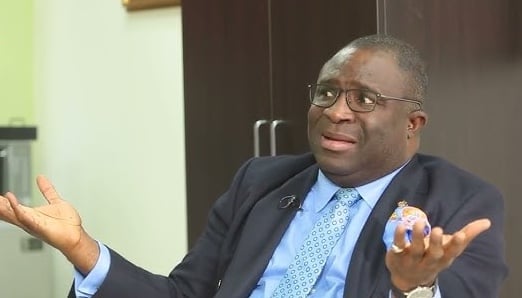Eugene Boakye Antwi, a former Member of Parliament for the Subin constituency, has expressed strong reservations about the New Patriotic Party’s (NPP) strategy for analyzing its defeat in the 2024 elections. Specifically, he criticized the formation of committees to investigate the loss, questioning their purpose and effectiveness, particularly highlighting the appointment of Mike Ocquaye, who chaired the party’s election committee, to lead one such investigative body. Antwi argues that the reasons for the NPP’s defeat are already well-known and widely discussed within the party, making the committees redundant and a waste of resources. He believes that convening a committee simply to reiterate what is already common knowledge within the party is a futile exercise.
Central to Antwi’s critique is the selection of Mike Ocquaye as the head of a key investigative committee. Antwi finds this appointment deeply problematic, given Ocquaye’s role as chairman of the NPP’s election committee for both the presidential and parliamentary elections. He contends that Ocquaye’s leadership during the election campaign was a contributing factor to the party’s loss, making his appointment to investigate the defeat illogical and potentially counterproductive. Essentially, Antwi argues that appointing someone involved in the electoral process to investigate its failures is akin to asking the fox to guard the henhouse. He believes this demonstrates a lack of serious introspection within the NPP and raises questions about the party’s commitment to genuine self-assessment and reform.
Antwi emphasizes the severity of the NPP’s electoral defeat, describing it as the party’s worst performance in Ghana’s electoral history. He points to the significant loss of parliamentary seats as a clear indicator of the party’s declining popularity and effectiveness. He attributes this decline, in part, to deep-seated internal divisions within the NPP. These divisions, he argues, manifested in the form of disgruntled party members choosing to run as independent candidates, further fragmenting the NPP’s support base and contributing to the loss of seats. The emergence of these independent candidates, according to Antwi, not only directly impacted the election results but also served as a visible symptom of the party’s internal disarray.
Antwi’s concerns highlight a broader issue within the NPP: the potential for internal conflicts and a lack of unity. His criticisms suggest that the party may be struggling to acknowledge and address its internal problems. The decision to form committees, especially one led by someone implicated in the electoral defeat, could be interpreted as an attempt to deflect responsibility rather than confront the underlying issues. Antwi’s outspoken critique underscores the need for the NPP to engage in a more thorough and honest self-examination, addressing the root causes of its electoral setback, rather than engaging in superficial investigations. He believes that ignoring the fundamental issues that led to the defeat will only perpetuate the party’s decline.
The former MP’s comments paint a picture of a party grappling with internal discord and struggling to come to terms with the magnitude of its electoral loss. His criticisms of the investigative committees and the appointment of Mike Ocquaye underscore a perceived lack of accountability and a potential unwillingness to confront difficult truths within the NPP. The party’s response to this criticism will be crucial in determining its ability to recover and rebuild its support base. A failure to address the concerns raised by Antwi and others could signal a deeper crisis within the NPP, potentially impacting its future electoral prospects.
In essence, Antwi’s argument boils down to a call for genuine introspection and meaningful reform within the NPP. He believes the party needs to move beyond superficial investigations and address the fundamental issues that contributed to its defeat. These include internal divisions, strategic missteps, and a potential disconnect with the electorate. He argues that only by acknowledging and addressing these underlying problems can the NPP hope to regain the trust and support of the Ghanaian people and rebuild its political strength. The formation of committees, particularly one led by a figure associated with the electoral defeat, is seen by Antwi as a symbolic gesture rather than a genuine effort to address the root causes of the party’s decline.














